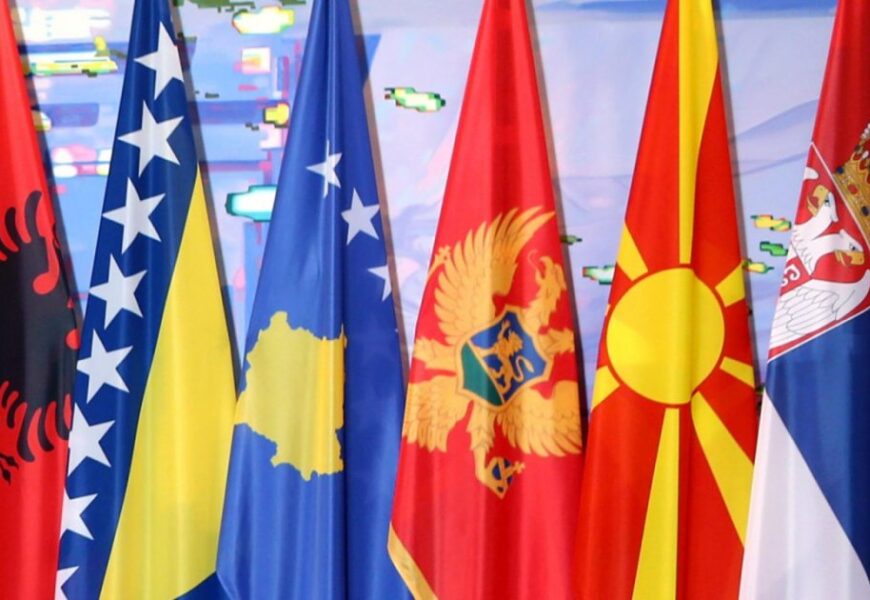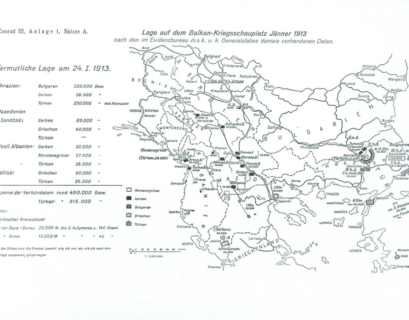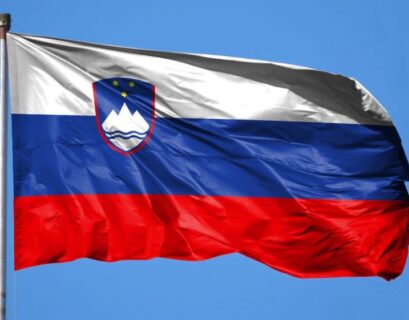By Andi Hoxhaj
Introduction
The EU enlargement policy for the Western Balkans was at a standstill between 2003-2018, largely, in part, due to various crisis within the EU, including, global financial crises, the Eurozone, Brexit and the migration crisis. Hence, the EU enlargement policy was seen to be running out of steam, and, during this time, it had allowed other powers, such as Russia, Turkey, and China, to invest – both economically and politically – in the Western Balkans. However, Russia’s annexation of Crimea in February 2014 made the EU re-valuate its enlargement policy approach to the Western Balkans, largely in response to the fear of further expansion of Russian influence in some of the Western Balkans countries.
In 2014, Germany took the initiative to invite the leaders of the Western Balkans to a “EU-Western Balkans Summit” in Berlin in order to explore new ways of co-operation that could go beyond the technical and legal process of the EU accession framework – focusing on increasing EU investments and establishing a new type of forum to increase political and economic co-operation. The foreign policy objective of Germany is to bring the Western Balkans closer to the EU orbit, and, at the same time, to offer these countries more assistance in undertaking key structural reforms that are in line with EU law and policies – under the “Berlin Process“ framework.
As the next section explains the “Berlin Process” laid the foundation for the new EU-Western Balkans enlargement strategy that was adopted by the Commission in February 2018, and the idea to establish the Western Balkans Regional Common Market based upon the EU Single Market adopted in November 2020
The Berlin Process
The Berlin Process was introduced to inject new momentum into the EU enlargement policy agenda, to improve political co-operation, and to promote market integration within the Western Balkans. Moreover, it was a direct response to the growing political and economic investments by Russia, China, and Turkey, which were exploiting the EU disengagement with the Western Balkans between 2003-2018 – which later late to the EU adopted the EU-Western Balkans Enlargement Strategy 2018 and re-orientating its EU enlargement agenda.
The Berlin Process is structured to be complementary to the overall EU enlargement process, focusing on market integration, and mapping out some of the issues that are holding back the Western Balkans’ economies from becoming more competitive. It can be characterised as an ad hoc and flexible EU enlargement instrument that is based more upon a soft law approach to allow the Western Balkans to make more collaborative and joint commitments towards EU integration without the pressure of the hard law approach which comes from the technical and legal process under the EU accession framework. However, it is in full synergy with the EU accession conditions. Unlike the EU accession framework, the first objective of the Berlin Process is to improve the dialogue between the six Western Balkans countries by bringing together the leaders of the Western Balkans annually. In particular, to address the ethnic disputes resulting from the break-up of Yugoslavia, especially by supporting the talks for the normalisation of relations between Serbia and Kosovo. The second objective is to provide political and financial support for strategic infrastructure investments in the Western Balkans and increase the connectivity between these countries and the EU, thereby also breaking up some of the market monopolies captured by small networks of companies close to the policy-makers. The third objective is to promote more market integration and to create a Western Balkans regional common market based upon the EU Single Market rules. Fourth, it aims to include civil society organisations as part of the policy design for the Berlin Process summits.
This article identifies the three underlying objectives of the Berlin Process and why establishing a common market based upon the EU Single Market rules is central to the new EU engagement with the Western Balkans. First, to counter the investments from China, Russia, and Turkey, and to ensure that any future investments in the Western Balkans are assessed under EU rules like those of the EU Single Market. Second, to break up the monopolies and anti-competitive practices in crucial sectors, such as energy and telecommunication, and to ensure that antitrust rules are applied accordingly in line with the EU Single Market rules. Third, to provide a new pool of cheap labour and a safe region for EU companies to invest in, which can be protected under the EU Single Market rules.
In conceptualising the Berlin Process, it can be observed that Germany, which is the main drivers of the new EU engagement with the Western Balkans, believes that regional market integration is the best avenue to overcome bilateral and ethnic disputes. This is based upon the Plutarchian idea that countries which are more economically and socially integrated are less likely to go to war and it has shaped some of the EU policy-makers thoughts about the new EU engagement with the Western Balkans. As a result, the leaders of Western Balkans endorsed a proposal at the 2017 Berlin Process summit to start adopting new policies to create the conditions for establishing “The Western Balkans Regional Economic Area” based upon the EU four freedoms. Thereafter, the Commission allocated 1 billion euro in grants, conditional to its being spent on key infrastructure and connectivity projects in support of the proposal.
The idea to increase market integration and regional co-operation with the Western Balkans has framed a lot of the thinking around the new EU-Western Balkans enlargement strategy adopted in February 2018. Furthermore, setting up a Regional Common Market based upon the EU Single Market rules is suggested as the best avenue for successful integration into the EU. This notion is based upon Kant’s thinking that open markets, which some have suggested played an important role in the justification of post-war European integration and sustaining peace in the EU. This way of thinking influenced the succession of Berlin Process summits between 2014-2018, and laid the grounds for the EU-Western Balkans enlargement strategy of 2018, with a view to promoting socio-economic integration within the Western Balkan countries in order to overcome the legacies of the break-up of Yugoslavia, akin to what post-war Europe achieved through the European Union.
The Western Balkans Common Market 2020
During her State of the Union speech in September 2020, the President of the Commission, Ursula von der Leyen, stated that the “Western Balkans are of great strategic importance to the European Union” and that the EU planned to introduce a long-term economic and connectivity plan to link “the Western Balkans as closely as possible to EU”. Thereafter, the Commission presented an economic and sustainable development package called the “Economic and Investment Plan for the Western Balkans” in October 2020, which is a 10-year plan to support socio-economic development. Furthermore, it has re-oriented the “Instrument for Pre-Accession Assistance” funding by assigning 9 billion euro to support economic convergence with the Western Balkans for the period 2021-2027. This is directly aimed at promoting the establishment of the “Regional Common Market” for the Western Balkans.
According to the Commission, the “Economic and Investment Plan for the Western Balkans” objectives aim to bring the Western Balkans infrastructure and good governance in line with the EU Single Market standards. A particular focus is paid to improving the interconnection between the Western Balkans and the EU by building new motorway and high-speed railway infrastructure, investment in renewable and sustainable energy, to start a full transition from coal, thereby reducing greenhouse gas emissions, and improving waste and wastewater management. Furthermore, the economic and investment plan suggests that, in order to raise investments of up to 20 billion euro from private investors, the EU will provide guarantees to help reduce the cost of financing for public-private investments and to reduce the risks for EU investors in the Western Balkans.
As a result, a four-year action plan to create the “Western Balkans Regional Common Market” by the end of 2024 was adopted by the Western Balkans leaders at the Berlin Process Summit held in November 2020. The Commission, as well as the main EU leaders behind the Berlin Process, Chancellor Angela Merkel of Germany and President Emmanuel Macron of France, welcomed this decision and reiterated that, if the “Regional Common Market” was successfully implemented, based upon the four freedoms, and followed the rules of the EU Single Market, then the Western Balkans could participate in the EU Single Market in the future.
In other words, the Western Balkans “Regional Common Market” can be viewed as a springboard for the Western Balkans to harmonise their laws, policies, and the institutions with those of the EU Single Market rules, and, should their economies become more competitive and they are able to show a good track record of upholding the rules of the EU Single Market, the award is participating in the EU Single Market. The Regional Common Market action plan gives more in-depth guidelines about the laws and policies that must adopt by the end of 2024 – in particular, there is a more concrete timeframe for implementation, as national laws and policies must be aligned with those of the EU Single Market rules required for the free movement of goods, people, services, and capital by the end of 2024. The action plan is divided into four policy blocks and offers guidelines on the legal and policy areas that must be aligned with the EU Single Market rules by 2024, which can be summarised as follows:
- Regional trade area: free movement of goods, services, capital, and people;
- Regional investment area: aligning investment laws and policies with the EU Single Market standards and promoting the region to foreign investors;
- Regional digital area: integrating the Western Balkans into the pan-European digital market and following the EU rules; and
- Regional industrial and innovation area: developing a joint EU-Western Balkans strategy to transform the industrial sectors and following the EU Single Market rules.
The novelty of the “Regional Common Market” action plan of 2020 is that now there is a clear timetable about the laws and policies that must be implemented by 2024, which also benefits the countries in their endeavours to meet the EU accession criteria. However, it remains to be seen whether the Western Balkans will be able to launch the Western Balkans Regional Common Market by the year 2024.
Barriers to the Common Market
In the EU-Western Balkans enlargement strategy of 2018, it was suggested that “the Western Balkans countries show clear elements of state capture, including links with organised crime and corruption at all levels of government and administration, as well as a strong entanglement of public and private interests”. However, the action plan for the Regional Common Market has overlooked the issue of state capture, which could become a major barrier to its successful functioning.
This article argues that the action plan for the Regional Common Market and the EU accession framework must pay more attention to the issue of state capture in the Western Balkans. In particular, it must conduct an impact assessment on the effect that “anti-competitive laws” and “tailor-made laws” could have on the functioning of the Regional Common Market, which are also understudied as issues by researchers. A new study published by Southeast Europe Leadership for Development and Integrity (SELDI) on “anti-competitive laws” in October 2020, and one by Transparency International (TI) on “tailor-made laws” in December 2020, present alarming findings on the complex nature of state capture in the Western Balkans, which must be taken into account by EU policy-makers during the implementation phase of the Regional Common Market.
In its report entitled “State Capture Assessment Diagnostics in the Western Balkans”, SELDI finds that there is a high degree of monopolisation in key sectors of the economy, such as in energy, pharmaceuticals, telecommunications, and construction, and it is concentrated closely to companies that have close ties with the government. Furthermore, these sectors are also prone to external pressure through foreign investments, such as Russia in energy, or Turkey. For example, in Serbia, Russia controls revenues of close to 5 billion euro or 13 per cent of the total revenues generated by the national economy in the energy sector, as Gazprom and Lukoil dominate the oil and fuels markets. Serbia is almost fully dependent on gas imports from Russia and the two companies have a total monopoly of its energy market. According to Prelec, it is through intermediaries in the central government that local political leaders are facilitating the monopoly in exchange for a stake in the company or bribery. Similar trends can also be observed in Albania where Turkish foreign direct investments have strong stakes in the banking sector, in which it owns 60 per cent of the biggest Albanian commercial bank (Banka Kombetare Tregtare (BKT)). Furthermore, Turkey also has a large stake in the telecommunication sector, as the Albanian government sold 76 per cent of its shares in the biggest-state owned company, known as Albanian Telecom (Telekomi Shqiptar) to two Turkish companies in 2007.
Thus, what the Regional Common Market action plan and the EU policy-makers must understand is that the Western Balkans have legal barriers in place for entering their market and administrative requirements to obtain service licences. These barriers are often skewed in favour of a privileged company close to the government, and, due to the weak judicial system, antitrust laws are ineffective. In addition to the high degree of monopolisation and anti-competitive practices, state capture is also utilised by the governments in the passing of “tailor made laws” for individual companies, which, in a way, legalises the state capture and monopolisation of the market, and makes any corrupt practice impossible to prosecute. The Transparency International report entitled “Examining State Capture: Undue Influence on Law-Making and the Judiciary in the Western Balkans and Turkey” has analysed the laws from 2005 to 2020 that were adopted by the governments and parliaments only to support the monopoly for several companies close to them in specific sectors of the economy.
The research on tailor-made laws is rather new as a field, but the two examples should be taken into account by the EU policy-makers for monitoring the implementation of the Regional Common Market, especially since the EU plans to support public-private partnership projects to achieve its goals of attaining up to 20 million euro in investments by 2030 in the Western Balkans. The tailor-made laws are possibly the highest expression of state capture, because the laws enable monopolisation and, at the same time, make it difficult for the judicial and law enforcement institutions to investigate and prosecute any of the cases. Furthermore, the lack of enforcement of the anti-monopoly laws reduces the monitoring capacity of auditing agencies and thereby prevents accountability and scrutiny, and weakens the credibility of the media and civil society organisations in reporting such cases. Although more research is required to grasp fully the scope and impact of undue influence in law-making and the phenomenon of tailor-made laws, this article argues that, in the absence of an independent judiciary, the Regional Common Market action plan and the EU enlargement framework must pay more attention to these anti-competitive practices as the EU initiative on strengthening the rule of law fosters more success.
Conclusions
The introduction of the Berlin Process, the EU-Western Balkans enlargement strategy of 2018, and the Regional Common Market in 2020, suggest that, in its re-engagement with the Western Balkans, the EU wants to pursue closer political and economic co-operation based upon the EU Single Market rules with a view to the future expansion of the Union into the Western Balkans. At the same time, supporting the socio-economic and socio-legal development of the Western Balkans by targeting areas of common interest, as well as providing the EU investors with a new market and economic areas based upon the EU Single Market rules – thereby ensuring that the supply chain and the automotive industry in particular can move back closer to the European continent post-COVID-19, rather than China, and operate in country preferably under the EU Single Market rules.
The EU common market initiative for the Western Balkans, if applied in an orderly manner, and if there is a track record by the Western Balkans in upholding the rules of the EU Single Market, may accelerate their chances for future accession to the EU. At the same time, it also offers a unique opportunity to participate in the EU Single Market should the Western Balkans manage to make the Regional Common Market a success. However, for the Regional Common Market to be functional, the rule of law must be strengthened. Although there are, to date, some encouraging EU-led reforms as part of the accession process, as the case of Albania shows, it is not sufficient, given that the judicial systems throughout the Western Balkans are prone to corruption and to state capture.
Thus, in the absence of independent institutions, the inclusion of members of civil society and the business community to monitor and provide oversight in the implementation phase is critical for launching the Western Balkans Regional Common Market in line with EU Single Market legislative framework. However, the EU and the Western Balkans should consider making arrangements to allow the Court of Justice of the European Union to be involved in the future, when the Regional Common Market is functional, so that the national courts of the Western Balkans can make references and ask for opinions in the event that a country or business is not abiding by the EU Single Market rules. This would also help in strengthening the rule of law in the Western Balkans and would also increase the EU legal integration in these countries, which would gradually help the national courts to adjust their legal formworks in a timely manner, before the Western Balkans are allowed to take part in the EU Single Market.









